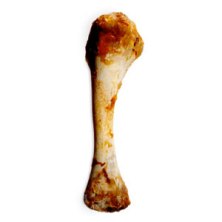 I wasn’t in Hong Kong an hour when I had a standoff with my cab driver. “I’m calling the police!” he boomed in his even louder than normal loud voice, and before I could say or do anything he had dialed his flip phone and was angrily barking in Cantonese.
I wasn’t in Hong Kong an hour when I had a standoff with my cab driver. “I’m calling the police!” he boomed in his even louder than normal loud voice, and before I could say or do anything he had dialed his flip phone and was angrily barking in Cantonese.
Welcome to Hong Kong.
It was a Friday night, my first time in Hong Kong. I was traveling alone, to attend a conference for my travel business. I jumped in a cab at the airport and showed the driver the name of the hotel I had booked. Off we went.
Quite some time later, we neared the hotel’s alleged location. After circling the block three times, the driver informed me he would be dropping me off in the proximity of the hotel, because he didn’t really know exactly where it was. Unacceptable, I thought to myself. I insisted that he deliver me to the hotel, as agreed. The thought of wandering around Hong Kong with my bag at 11:00pm trying to find my way to the hotel seemed inane after spending a small fortune on a cab ride.
Of course this was all transpiring in Mandarin Chinese. Mandarin was clearly his second language, and mine as well. Our communication was labored. He wasn’t the most placid of cabbies. We were both growing impatient and exacerbated as he rounded the block one more time. Finally, by a stroke of dumb luck he pulled up in front of my hotel.
The meter read $130. As I opened my wallet, he told me the price was $180. I pointed to the meter and said I would pay $130. That’s when he called the police. I was stunned. If anything, it seemed HE was the one trying to rip ME off. So why was he calling the police? Was he bluffing?
Seeing that I was still unwilling to pay him more than the metered amount, the cab driver started hollering at passersby, hailing anyone he thought might serve to interpret English and Cantonese. Some young guys approached the cab. By this time we had drawn a small crowd. The young men kindly told me the driver was charging a toll fee, in addition to the meter fee. Now staff from the hotel had also gathered around the cab.
So this is Hong Kong.
I asked my new interpreter friends if I should be concerned or afraid of the cops. Being American, and having also lived in Mexico for five years, I am well aware of police brutality and shakedowns. Could this be a scam orchestrated by the driver his police buddies to empty my pockets? “The cops here are cool, just sit tight,” one guy said.
Finally the cops arrived, three men in uniform donning peaked caps. They were tall, fit and dashing. For a split second I thought (hoped?) maybe they could be strippers. Two began talking to the driver and one started asking me questions in English. I explained the meter read $130 when we arrived at the hotel, after several extra annoying laps around the neighborhood. The driver wanted to charge me an additional $50.
Honestly at this point I didn’t even do the currency conversion. It wasn’t about how much it cost. I have this terrible pet peeve about being ripped off and taken advantage of when I travel. This is where my stubbornness rears its head and I defiantly dig in my heels.
I calmly explained, “There is nothing posted in the cab about paying toll fees, and I didn’t see a receipt for the toll.” The police officer demanded the driver show the toll receipt. It was $30. He instructed me to pay $160, and I agreed. It was a small but sweet victory. I called the cabbie’s bluff and won.
The police asked if I wanted to file a complaint against the driver for overcharging me. I proffered my passport and my side of the story. They readily accepted and began filling out paperwork. They told me I would need to appear at the police station within five days to complete the complaint process.
“Oh. I’m flying back to Taipei after my conference tomorrow. Unfortunately I won’t be here long enough to pursue the complaint.”
A handsome cop returned my passport and apologized for my unfortunate choice of cab drivers. I thanked him several times and apologized for their trouble.
Truth be told, I didn’t really want to get tangled up in Hong Kong’s legal system, but the look on the cab driver’s face when I called his bluff and started to file the complaint was highly satisfying. Along with the fact that his police scare tactics backfired, and I wasn’t intimidated into paying the inflated price he originally claimed I owed. I have no problem paying for services rendered. Money was never the issue; I just really hate getting cheated or lied to.
Taxi overcharges and fraud, especially airport taxis which prey on your fresh off the plane vulnerability, are usually avoidable with the following five tricks. I’ve had pretty good success with these in my travels.
- Ask a convenience store clerk at the airport how much a taxi should cost to your destination. As a non-vested third party, they will give an honest figure.
- Take taxis with meters whenever possible.
- Non-metered taxis still exist in some cities. If the taxis are not metered, negotiate the price before getting in. This is when #1 above really comes in handy.
- Check at the airport to see if you can buy flat rate taxi tickets before getting into a cab.
- Do a bit of research before you travel to know if taxi scams are prevalent in the city you will be visiting, and what you can do to avoid them. Many cities have reliable and convenient transportation by train, bus or subway, and you may be able to avoid taxis altogether.
Do you have a story about being scammed or overcharged by taxi drivers? I’d love to hear it! Please share in the comments.
Don’t miss a beat. Subscribe to the blog to get new posts delivered to your inbox. Thanks for reading!
 It’s taken many disasters and disappointments before finally finding the right hair stylist. Blonde highlights are hard to come by in Taipei, and so while the salon itself is a far cry from the upscale western-esque salons I am used to, I’m happy to go there because my stylist is amazing. Plus, I get the added bonus of experiencing a traditional Taiwanese style salon.
It’s taken many disasters and disappointments before finally finding the right hair stylist. Blonde highlights are hard to come by in Taipei, and so while the salon itself is a far cry from the upscale western-esque salons I am used to, I’m happy to go there because my stylist is amazing. Plus, I get the added bonus of experiencing a traditional Taiwanese style salon.


